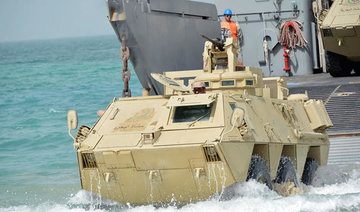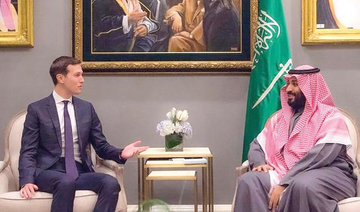WASHINGTON: The strength of the US counterterrorism relationship with Saudi Arabia “rivals” that with its historic ally the UK — although this has yet to register with the American public, a former homeland security adviser told Arab News.
Information provided by the Kingdom has prevented several terror attacks and helped save American lives, said Frances Townsend, who worked in the administration of former US President George W. Bush.
Saudi Arabia has stood “shoulder to shoulder” with the Americans in combating terrorism, Townsend said.
“This relationship has developed in terms of counterterrorism — in particular, information sharing and intelligence sharing — which from the United States’ point of view rivals (what we share with) Britain, our longest historic ally,” she said.
“We have a critical information and intelligence-sharing relationship that is almost unparalleled with any of our other partners
She cited two terror plots that were prevented specifically due to intelligence from Saudi Arabia.
“The intelligence exchange between Saudi and American officials has saved American lives,” Townsend said.
“It is a very important ... partnership. It is critical to protecting the American homeland.”
Yet this is not something recognized by many Americans, who are still acutely aware that 15 of the 19 hijackers in the 9/11 terror attacks were Saudi citizens, Townsend said.
“That ... single fact is what has stuck in people’s minds,” she said, adding that the attacks sought to “drive a wedge” between the Kingdom and the U
“We had to work very hard during the Bush administration, when I was in the White House, to repair that relationship,” she said.
Townsend, speaking to Arab News during the visit by Saudi Crown Prince Mohammed bin Salman to Washington, said that the royal visit could help address some of these concerns.
“What you would hope is that people see this longstanding historic relationship is not just about oil, it is not just about money. But this is about economics, it is about security, it is ... a bigger, broader, stronger relationship,” she said.
The White House said earlier this week that the US, Saudi Arabia and UAE were planning a tripartite security forum that would meet regularly to address issues such as the alleged threat posed by Iran.
This agreement would help to strengthen intelligence ties, Townsend said
“That sort of a dialogue, at a strategic level, can be very productive,” she said.
“Our partners in the region — the Emiratis, the Saudis — have suffered from Iranian aggression, whether that is in Yemen, Syria, Iraq or Bahrain.
“I think the (Saudi) crown prince, in particular, has shown real leadership in terms of confronting and addressing that threat. And so I think that it is beneficial to all three parties to share intelligence, both tactical and strategic,” she said.



























